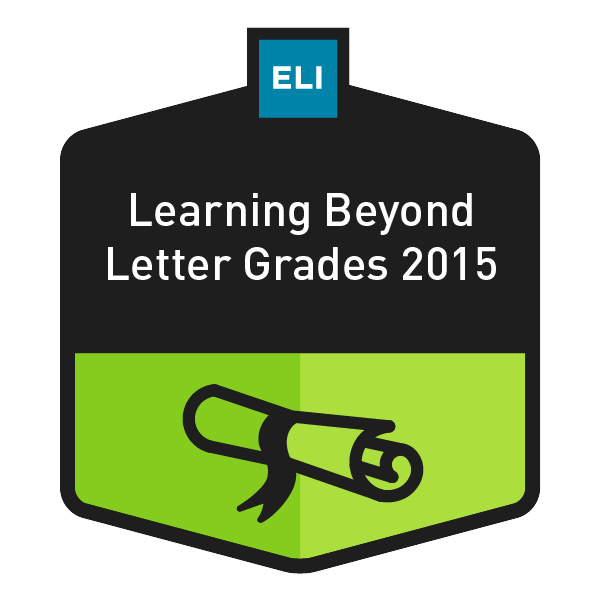Learning Beyond Letter Grades: Exploring the Promise & Possibility of Assessment
Why do so many schools use letter grades? What do they tell us and fail to tell us about the learners? What is the relationship between letter grades, student learning, and assessment? This three-week course will allow participants to consider different ways to augment or enhance the common letter grade system by designing a variety of formative assessment or feedback strategies. As such, we will examine the benefits and limitations of a myriad of options: peer assessment & workshopping, self-assessment, portfolio assessment, narrative assessment, authentic assessment, and competency-based assessment. As a way to develop a deeper understanding of the subject, you will be invited to examine a variety of real world examples of learning organizations that use or support these different assessment models in place of or in addition to a traditional letter grade system.
Driving Questions
During this online ELI Course, participants will explore answers to the following questions:
- Why do we need more than the letter grade system when it comes to assessment & feedback?
- What is the difference between formative and summative assessment ?
- What is the difference between grading and assessment?
- What happens when formative assessment is absent?
- What are the benefits of emphasizing formative assessment?
- How can we make our assessments meaningful and authentic?
- What are the affordances of narrative feedback?
- How can I provide meaningful and substantive narrative feedback?
- When is peer assessment (or workshopping) an appropriate means of assessment?
- What factors/variables/resources need to be present in order for this type of assessment to be valuable/valid?
- How can self-assessment foster learning?
- How can we equip/prepare students to benefit from and engage in self-assessment?
- What are the benefits and limitations of portfolio assessment?
- How do you plan for using portfolio assessment in a course or program?
- What is competency-based education?
- How can I leverage principles of competency-based education in my course, program or learning organization to provide rich and meaningful feedback?
- How can we build digital badge systems that provide rich and meaningful feedback on student learning?
NOTE: Participants will be asked to complete assignments in between the course segments that support the learning objectives stated above and will receive feedback and constructive critique from course facilitators on how to improve and shape their work.
Course Facilitator

Bernard Bull
Assistant Vice President of Academics and Associate Professor of Education
Concordia University Wisconsin
